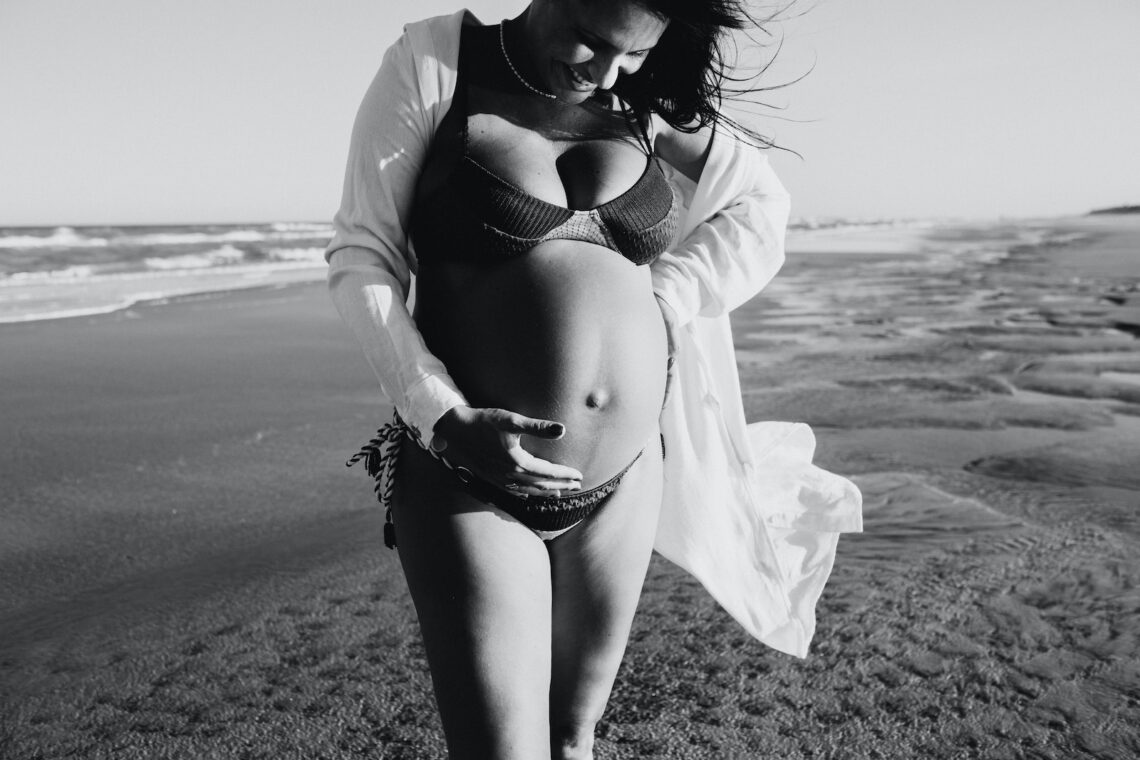Sore breasts and nipples are among the earliest signs of pregnancy. The pain and tenderness are caused by shifts in the hormones progesterone and estrogen.
When the levels of these hormones drop around the start of the second trimester, your nipples may begin producing colostrum, which prepares you for breastfeeding. However, not everyone experiences relief at this point.
1. During the first trimester
The first trimester of pregnancy is when your body starts kicking things into high gear to get ready for baby. As a result, your nipples and breasts can feel sensitive and tender. You may also notice your areola becoming darker, bigger or even spotted with red streaks called Montgomery tubercles (they’re actually oil glands that supply lubrication).
For many women, sore nipples and breasts are one of the earliest signs they’re pregnant. In fact, it’s possible that this symptom could appear before a missed period — though a positive home pregnancy test is the most definitive proof of the pregnancy.
Fortunately, sore nipples and boobs are often temporary early pregnancy symptoms that will disappear as soon as your hormone levels start to drop during the second trimester of pregnancy. However, this doesn’t necessarily mean your nipples will stop hurting entirely because by the 20th week of pregnancy, milk-making cells will become activated and colostrum production begins.
Then, in the third trimester, your nipples and breasts are at their most painful. This is due to the increased demands of producing colostrum and mature breast milk for your newborn. However, this pain should only last a few weeks as your body is able to adjust to the changes. Afterward, your nipples and breasts will feel more like they did pre-pregnancy.
2. During the second trimester
During the first trimester, sore breasts and nipples are often one of the first signs of pregnancy. They’re caused by the influx of hormones following implantation, which occurs when a fertilised egg implants into your uterus wall. The sudden surge in oestrogen and progesterone can cause your nipples to feel tender, achy, swollen and hypersensitive. You may also notice that your areolas are darker and bigger, and possibly spotted (this is normal).
As the second trimester begins, this is when your body will usually start to settle down. However, this doesn’t mean that your boobs will stop hurting altogether. It’s a good idea to keep a record of all your symptoms, including pain in the nipples, as this can help your doctor monitor your pregnancy.
As you get closer to your due date, the nipples will start to feel less achy and sore as the milk-producing cells become activated. However, it’s important to remember that every woman is different and you may still experience sore nipples throughout the rest of your pregnancy.
3. During the third trimester
During the third trimester, you might notice that your breasts feel fuller and heavier than usual. That’s because you’re close to giving birth, and the nipples are preparing to feed your baby! But you may also experience pain in your nipple area, which can be made worse by certain foods, exercise, or sex. During this time, you’ll probably also see raised bumps around your areola called Montgomery tubercles. These are actually glands that help lubricate the area and prevent germs from forming.
It’s hard to give a definitive answer about when your boobs will stop hurting during pregnancy, because every woman is different. But if you follow the advice in this blog post, you can ease your discomfort!
Many women who are trying to conceive might have sore boobs in early pregnancy, even before a missed period. This is usually caused by surging hormones that are preparing the body for the baby’s arrival and starting to make milk. In most cases, this symptom passes by the second trimester, although it’s important to consult a doctor if you have any concerns. Similarly, you should always seek medical advice if you experience any unusual bleeding or pain. That could be a sign of an infection or something more serious! However, most women find that their boobs become less sore as the pregnancy progresses.
4. During the fourth trimester
Some women might get relief from breast pain around the start of the second trimester. This is due to a drop in estrogen and progesterone levels. However, that doesn’t mean your nipples and breasts have stopped preparing for labor, breastfeeding, and the growth of a baby. In the second trimester, milk-making cells become activated, and many women start leaking colostrum (a watery, yellowish “pre-milk”).
As you continue to grow closer to your due date, your nipples might feel sore or tender. Some mothers describe this as an extreme version of how their nipples feel right before their period. Having sore nipples doesn’t necessarily mean you’re pregnant, and you should always check your symptoms with a doctor or midwife to be sure.
Having sore nipples and breasts during pregnancy is completely normal, and there are plenty of home remedies that can help alleviate the pain. Try ice packs to reduce swelling. You can also take a warm shower or use lotion to ease discomfort. If the soreness doesn’t go away, it’s OK to ask your doctor for over-the-counter pain relievers. Just make sure you don’t use painkillers that are unsafe for your baby. For example, acetaminophen is safe for most pregnancies. But you should avoid taking aspirin if possible.

